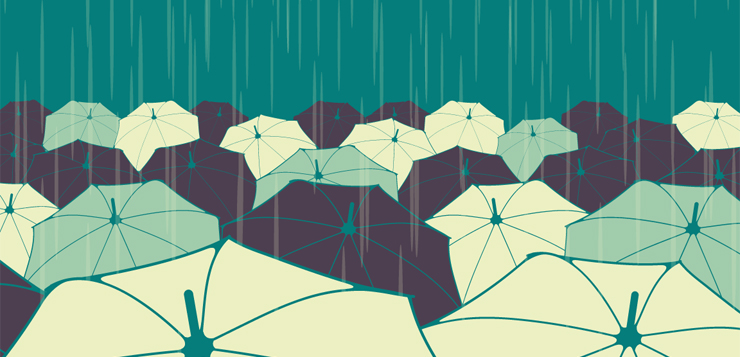I am delighted to share this article with you today. I get sent a lot of emails from “Mindful” and I freely admit I don’t read them all! But this one is so helpful and so good – I am sure many of us will find something familiar or useful in it. So if your Monday is not going so well or your week has started off on a low – read on! As ever, if you want to get in touch about this or to discuss any part of your life you are not coping with or happy with at the moment. Contact details are on this site.
Discovering ways to adapt to what life throws at you makes you more able to cope.
Resilience is the process of effectively coping with adversity—it’s about bouncing back from difficulties. The great thing about resilience is that it’s not a personality trait; it involves a way of paying attention, thinking, and behaving that anyone can learn.
World-renowned neuroscientist Richard Davidson has found evidence that mindfulness does increase resilience, and the more mindfulness meditation you practice, the more resilient your brain becomes. The emotional soup that follows a stressful event can whip up negative stories about yourself or others that goes on and on, beyond being useful. For example, if you have an argument with your partner before leaving for work, you can end up replaying that conversation all day, which continues to proliferate anxiety or low mood far more than is necessary. Mindfulness reduces this rumination and, if practiced regularly, changes your brain so that you’re more resilient to future stressful events.
The emotional soup that follows a stressful event can whip up negative stories about yourself or others that goes on and on, beyond being useful. Mindfulness reduces this rumination and, if practiced regularly, changes your brain so that you’re more resilient to future stressful events.
When I was a school teacher, sometimes the stress was incredibly high. I had SO much work to do and not enough time to do it. On top of that, dealing with difficult behaviour, demanding parents and requests from the management team, I certainly felt under pressure.
Fortunately, I had mindfulness to help me cope with the challenges. And I later discovered that mindfulness and related strategies were helping me cope.
There are several key aspects of resilience:
- Positive relationships—is the most important factor.
- The ability to make plans and take action to solve problems.
- The capacity to manage difficult emotions—mindfulness is an important aspect here.
- Effective communication skills.
Here are five ways to build resilience:
- Nurture relationships. Have a range of positive, supportive connections within and outside your family. If you don’t, take steps to improve the situation. Join a club, local group, volunteer group, or an evening class.
- Find meaning in difficulties. When faced with adversity, see if you can discover some positive way in which you’ve dealt with the challenge. People often report improved relationships, greater consciousness, or appreciation of life in the face of great difficulties.
- Be optimistic. Use mindfulness to shift your attention from negative rumination to more positive thoughts about the future. Hope and optimism is a choice. Avoid seeing crises as insurmountable. You can’t change the fact that very stressful events happen, but you can learn to change your response to that. The tiniest of changes counts, and meditation can help.
Avoid seeing crises as insurmountable. You can’t change the fact that very stressful events happen, but you can learn to change your response to that.
- Be decisive. Make decisions and take action rather than hoping things will get better one day. If you’re not good at this, read about how to improve this skill or ask a trusted friend to help. Not making a decision is in itself a decision.
- Accept that change is part of living. Expect things to change and adversity to occur, rather than pretend all will always be well. Change is part of life. Your goal is to cope effectively rather than avoid loss or pain.
When it comes to resilience, flexibility is the name of the game. Discovering ways to adapt to the changes that life throws at you makes you more able to cope.
Reflection: What simple action can you take to begin increasing your resilience? It can be as simple as picking up the phone and making a call every day.
This article was adapted from Shamash Alidina’s book The Mindful Way Through Stress.

